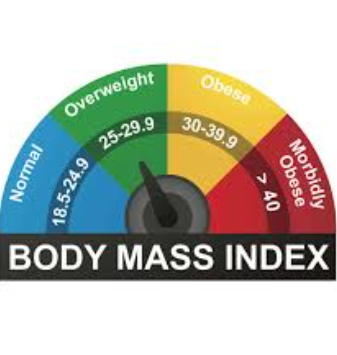Body Mass Index (BMI) is a widely-used tool to assess whether you are at a healthy weight for your height. Understanding your BMI can provide valuable insights into your overall health and help you make informed decisions about your well-being. In this comprehensive guide, we’ll walk you through how to calculate BMI and what it means for your health.

What is BMI?
Before diving into the calculations, it’s essential to grasp the concept of BMI. BMI is a numerical value that represents the relationship between your weight and height. It is a simple yet effective way to categorize individuals into different weight categories, which can help identify potential health risks associated with being underweight, overweight, or obese.
How to calculate BMI
Calculating your BMI is a straightforward process that involves a simple mathematical formula:
BMI = (Weight in kilograms) / (Height in meters squared)
Here are the steps to calculate your BMI:
Step 1: Measure Your Weight
Use a reliable scale to measure your body weight in kilograms. Ensure that you are wearing lightweight clothing and no shoes for accuracy.
Step 2: Measure Your Height
Measure your height in meters. You can convert your height from feet and inches to meters by dividing your height in inches by 39.37 (since 1 meter is approximately equal to 39.37 inches).
Step 3: Calculate Your BMI
Now, plug your weight and height measurements into the BMI formula:
BMI = (Weight in kilograms) / (Height in meters squared)
For example, if your weight is 70 kilograms, and your height is 1.75 meters:
BMI = 70 / (1.75 * 1.75) = 22.86
Your BMI is approximately 22.86.
Interpreting Your BMI
Once you’ve calculated your BMI, it’s essential to understand what the number means for your health. BMI values fall into different categories, which indicate your weight status:
Underweight: BMI less than 18.5
If your BMI is below 18.5, it suggests that you may be underweight. Being underweight can have health risks, such as a weakened immune system and nutrient deficiencies. Consult a healthcare professional for guidance on achieving a healthier weight.
Normal Weight: BMI between 18.5 and 24.9
A BMI between 18.5 and 24.9 is considered a healthy range. It indicates that your weight is proportionate to your height, and you are at a lower risk of weight-related health issues.
Overweight: BMI between 25 and 29.9
If your BMI falls between 25 and 29.9, you are classified as overweight. Being overweight can increase the risk of various health conditions, including heart disease, diabetes, and joint problems. It’s advisable to focus on weight management and adopt a healthier lifestyle.
Obesity: BMI 30 or higher
A BMI of 30 or higher indicates obesity. Obesity is associated with a significantly increased risk of serious health problems, including heart disease, stroke, and certain types of cancer. It’s crucial to seek medical advice and make lifestyle changes to address obesity.
Limitations of BMI
While BMI is a useful tool for assessing weight status, it has some limitations. It does not consider factors like muscle mass, bone density, and distribution of fat. As a result, some individuals with high muscle mass may have a higher BMI but still be healthy. Conversely, some people with a lower BMI may have a higher percentage of body fat.
How to Calculate BMI for Children
Calculating BMI for children follows a similar process but requires using age-specific growth charts and percentiles. The formula is the same, but the interpretation differs based on the child’s age and sex.
Take Action for Better Health
Understanding your BMI is the first step towards making informed decisions about your health. If your BMI falls outside the normal range, consider taking action to improve your well-being. Here are some tips:
Consult a Healthcare Professional
If you have concerns about your BMI, consult a healthcare professional. They can provide personalized guidance, conduct further assessments, and create a plan to help you achieve a healthy weight.
Adopt a Balanced Diet
Focus on a balanced diet rich in fruits, vegetables, lean proteins, and whole grains. Avoid excessive consumption of sugary, fatty, and processed foods.
Engage in Regular Physical Activity
Incorporate regular exercise into your routine. Aim for at least 150 minutes of moderate-intensity aerobic activity or 75 minutes of vigorous-intensity activity per week, as recommended by health authorities.
Monitor Your Progress
Track your weight and BMI regularly to assess your progress. Remember that healthy weight management is a gradual process.
Seek Support
Consider joining a support group or working with a registered dietitian or personal trainer to help you stay motivated and make sustainable lifestyle changes.
In Conclusion
Calculating your BMI is a valuable tool for understanding your weight status and its implications for your health. While BMI has its limitations, it remains a simple and accessible method for assessing your risk of weight-related health issues. If your BMI falls outside the normal range, take proactive steps to improve your health through a balanced diet, regular exercise, and professional guidance. Your health is a lifelong journey, and being informed is the first step towards a healthier you.

Remember, your health is not solely determined by your BMI. It’s just one piece of the puzzle, so make sure to consider other factors like diet, exercise, genetics, and overall well-being in your quest for a healthier lifestyle.









